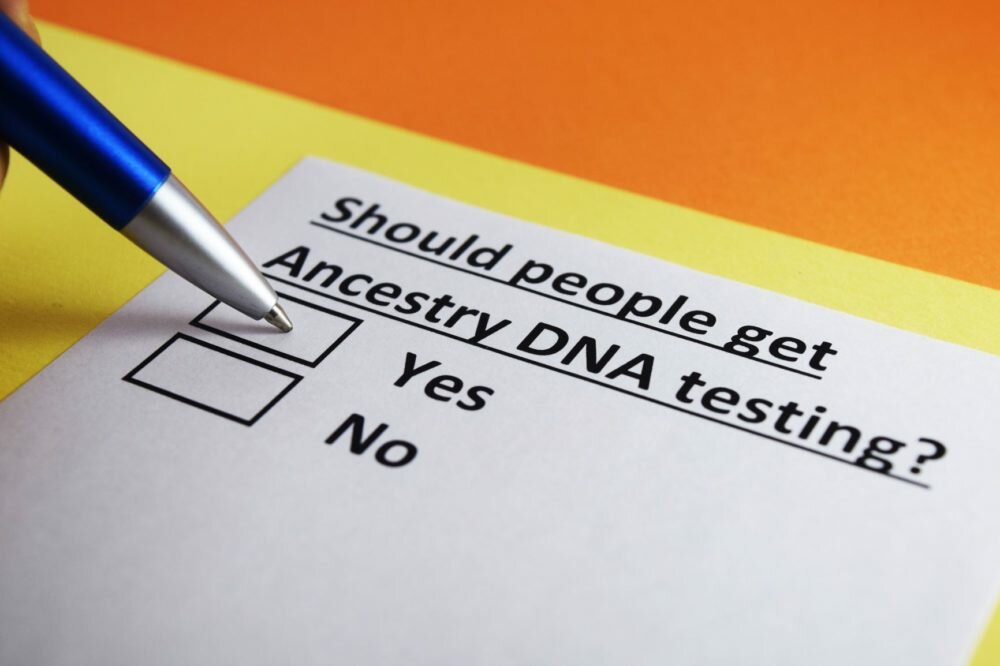While there are many positive and wonderful things about the world of genetic ancestry testing, there are also some exaggerated claims and errors that come to light.
Some of these claims include making inferences about an individual’s ancestors from direct-to-consumer genetic companies.
A recent BBC Radio 4 interview with Alistair Moffat of Britain’s DNA is an example of this. Today we will look closely at the claims made in this interview and their scientific basis to highlight their exaggerations and errors.
Background
Alistair Moffat, a rector at St Andrews University, is involved in Britain’s DNA, Scotland’s DNA, and Ireland’s DNA.
These companies work similarly using type Y and mtDNA markers to interpret ancestry based on the results. The cost is roughly £170 at the time of writing, based on either T or mtDNA testing, although they offer a lower price if you opt for the two.
The cost is slightly higher than their competitors, though, in the interview, Moffat claims the price is massively subsidized but does not elaborate on this.
The Interview
There was a running theme of biblical references within the interview and how Moffat’s work is consistent with biblical interpretations. Let’s look at some of these claims.
“What happened was a kind of genetic bottleneck - around 70 thousand BC [...] mount Toba blew itself to smithereens, and it was almost a species extinction event and also all other lineages [...] apart from Adam and Eve were destroyed.”
While there is nothing controversial about the Indonesian volcano’s reference, its effect on the population and genetic variation patterns is indeed controversial. There is no reason to believe that this devastating event would end all lineages other than ‘Adam’ and ‘Eve’s.
He then moves on to discuss Britain’s DNA results:
“With Britain’s DNA project [...] 4 or 5 weeks ago we discovered a remarkable individual, a Mr. Ian Kinnaird [...] has Eve’s DNA - he’s only two removed Eve [...] he’s Eve’s grandson.”
The concept of Eve and her relation to genetics are taken wildly out of place with its biblical connotations. The question of time should be raised here as well, as we would all be subject to the same passing of time since the events in the Bible, meaning that it would be a physical impossibility to be a grandson of Eve and alive today.
Without seeing the data, it is difficult to say where this claim has come from, but we would assume an error in this DNA’s computation.
“We found Sheban DNA - a marker called HV - which we didn’t expect to find, and I say we’ve got nine people who…”
There is no reliable scientific evidence to claim that the HV marker, usually referred to as a haplogroup, corresponds to Sheban DNA.
We don’t know the haplogroup of the Queen of Sheba, and as it was dispersed in the middle east along with other regions, it would not be surprising to find this haplogroup in the UK.
This interpretation falls into the category of “interpretative phylogeography.” The rationale is that the haplogroup must have originated from the point of the world commonly found today.
Population migration calls this into dispute. Also, not all of the population’s genetics have been studied in the same level of depth. It makes it challenging to have a concrete point of origin for every haplogroup.
Final Word
Human ancestry is a complex process, and there are still many unknown entities. Although we can provide insights into origin through DNA testing, we cannot offer an exact origination point for lineages as Moffat claims he has.
There is little scientific evidence to support his claims and his claims about being heavily subsided, which he does not thoroughly explain in his interview.
It would have been interesting to see the link between his commercial funding and scientific work, to see if there are any links to his outlandish and biblically-based claims.
